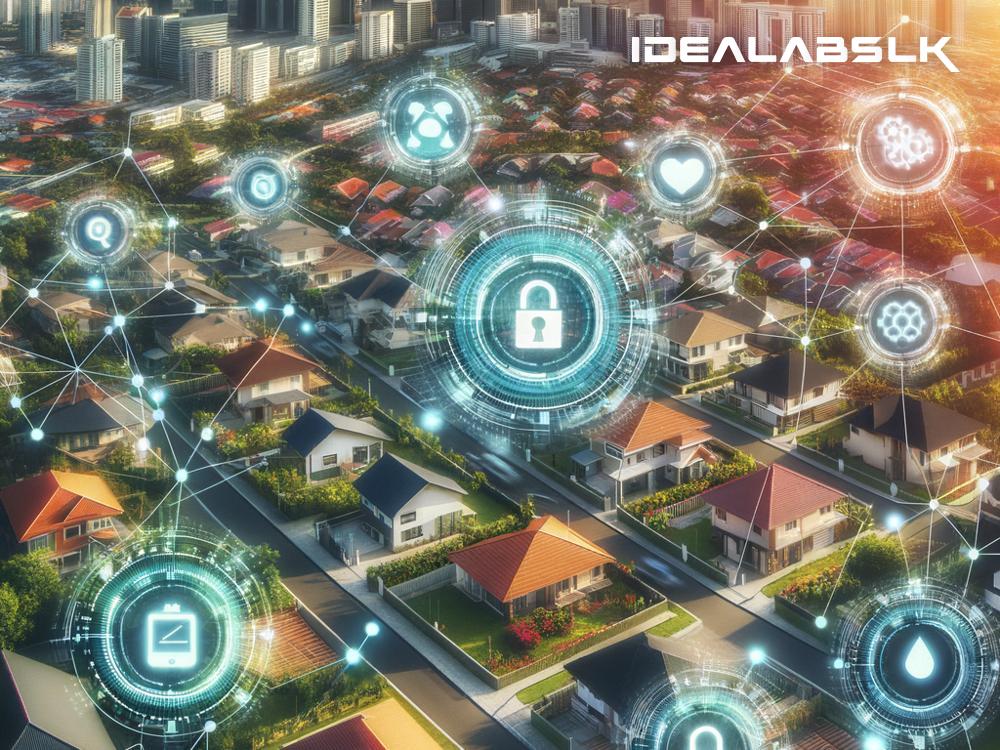Blockchain for Real Estate Market Transparency: A Beginner's Guide
The real estate market, known for its lucrative returns, has long been an attractive option for investors worldwide. However, it's also notorious for its lack of transparency, convoluted processes, and frequent inconsistencies in property data. This is where blockchain technology, a term that might sound complex but is simple in its core function, comes into play, promising to revolutionize the real estate sector by infusing transparency, efficiency, and reliability into its veins.
Understanding Blockchain in Simple Terms
Imagine a digital ledger that keeps records of transactions, much like a traditional ledger. However, instead of being held in one place, copies of this ledger exist on several computers spread across the world, known as nodes. Each time a transaction occurs, it's recorded in a "block" and added to a "chain" of previous transactions. This is essentially what blockchain is - a chain of blocks of digital transactions that are transparent, secure, and cannot be tampered with.
How Can Blockchain Transform the Real Estate Market?
1. Transparency and Trust:
Blockchain's inherent feature of maintaining transparent records can significantly enhance trust among all parties in the real estate market. Buyers, sellers, and intermediaries can access a property's transaction history, ownership data, and authenticity of documents without doubting their accuracy. This transparency helps eliminate fraud and ensures everyone is on the same page.
2. Streamlined Processes:
Buying or selling property involves a plethora of paperwork and procedures that are both time-consuming and complex. Blockchain can simplify these processes by digitizing and automating them. Smart contracts, for instance, are self-executing contracts with the terms of the agreement between buyer and seller directly written into lines of code. These contracts automatically enforce and execute the terms of the agreement, reducing the need for intermediaries and making transactions faster and smoother.
3. Enhanced Data Integrity:
In the traditional real estate market, property data can often be fragmented, outdated, or inaccurate. Blockchain provides a platform where property-related data, including title details, prior transactions, and current listings, are immutably recorded and easily accessible. This ensures that the data integrity is maintained, giving stakeholders confidence in the information they're basing their decisions on.
4. Improved Liquidity:
Real estate investments are typically considered illiquid, meaning they can't be quickly sold or exchanged for cash without a substantial loss in value. By tokenizing real assets, blockchain offers a way to improve liquidity. Property ownership can be divided into digital tokens representing shares in the property. These tokens can then be bought and sold on blockchain platforms, making it easier for investors to enter or exit real estate investments.
5. Reduced Costs:
By eliminating the need for various intermediaries, such as lawyers and brokers, and simplifying procedures, blockchain has the potential to significantly reduce transaction costs. Moreover, the accuracy and reliability of blockchain-recorded data can also diminish the expenses associated with title searches and property due diligence.
Real-World Applications and Future Prospects
While the integration of blockchain in real estate is still in its nascent stages, some pioneering projects are showcasing its potential. For example, platforms like Propy allow users to buy and sell properties using blockchain technology, facilitating secure, quick, and easy transactions. Similarly, several governments are exploring blockchain for land registry purposes to combat fraud and enhance efficiency.
As technology advances and the real estate industry becomes more receptive to innovation, the adoption of blockchain is expected to rise. This could lead to a paradigm shift in how properties are bought, sold, and managed, offering unprecedented levels of transparency, efficiency, and accessibility.
The Bottom Line
The real estate market stands on the brink of a transformation, with blockchain technology at its heart. By democratizing access to property data, simplifying transactions, and ensuring the integrity of information, blockchain can address many of the sector's longstanding challenges. For investors, buyers, and sellers, this means a future where the real estate market is not just more transparent but also more accessible and efficient.
The journey towards a blockchain-powered real estate market is just beginning, but the potential benefits are vast. As we move forward, embracing this innovation could redefine trust and transparency in real estate, making it a more lucrative and appealing investment opportunity for all.
Blockchain in real estate isn't just a futuristic concept; it's a viable solution to today's transparency and efficiency challenges, promising to reshape the market dynamics for the better.

